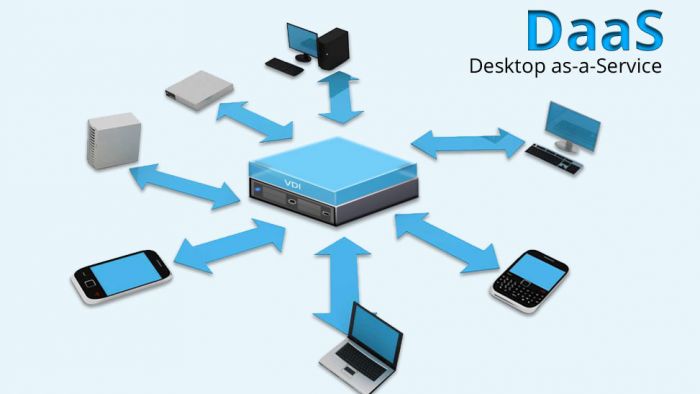DaaS Service
In the ever-evolving realm of technology, Desktop as a Service (DaaS) has emerged as a revolutionary solution, reshaping how businesses manage their desktop environments and streamline their operations. This article dives into the intricacies of DaaS service, exploring its benefits, implementation, and the profound impact it has on contemporary enterprises.
Understanding DaaS Service
At its core, DaaS service offers a cloud-based approach to desktop computing. Instead of relying on traditional on-premises infrastructure, DaaS provides virtual desktop instances hosted in the cloud. This cloud-centric model enables users to access their desktop environments from anywhere, on any device, ushering in a new era of flexibility and efficiency.

The Advantages of DaaS Service
-
Enhanced Mobility: DaaS service liberates users from the confines of a physical office space. With secure access to their desktops from various devices, employees can work remotely, boosting productivity and work-life balance.
-
Heightened Security: Cloud-based desktops ensure that sensitive data remains secure within the data center, reducing the risk of data breaches caused by lost or stolen devices.
-
Simplified Management: IT administrators can manage and update virtual desktops centrally, easing the burden of software deployment, updates, and patches.
-
Scalability: DaaS solutions are inherently scalable, allowing businesses to effortlessly accommodate changes in workforce size or seasonal demands.
-
Cost Efficiency: DaaS eliminates the need for high-end individual devices, reducing hardware costs and lowering maintenance expenses.
-
Disaster Recovery: Cloud-based desktops offer robust disaster recovery options, ensuring business continuity in the face of unexpected disruptions.
Implementing DaaS Service:
Implementing DaaS involves several key steps:
-
Needs Assessment: Evaluate your organization's requirements and determine which applications and data are suited for virtualization.
-
Provider Selection: Choose a reputable DaaS service provider based on factors such as data center security, compliance, technical support, and service-level agreements.
-
Desktop Configuration: Configure virtual desktop templates with the necessary operating systems, applications, and security settings.
-
User Onboarding: Migrate users to the DaaS environment, providing training and support for a seamless transition.
-
Monitoring and Optimization: Implement monitoring tools to track performance and optimize the virtual desktop environment for optimal user experience.
Choosing the Right DaaS Service Provider:
Selecting the right DaaS service provider is paramount for successful implementation. Prioritize providers that align with your business needs, offer robust security measures, and deliver consistent performance.
In Conclusion
DaaS service has emerged as a transformative solution, reshaping how businesses approach desktop computing. By harnessing the power of cloud technology, DaaS empowers organizations with greater mobility, security, and scalability. As the business landscape continues to evolve, embracing DaaS service can position enterprises to thrive in the digital age and leverage the full potential of modern technology.